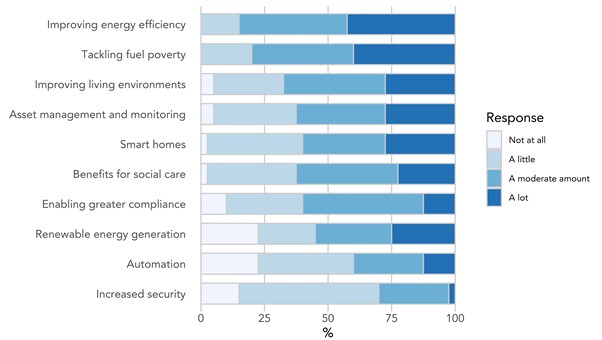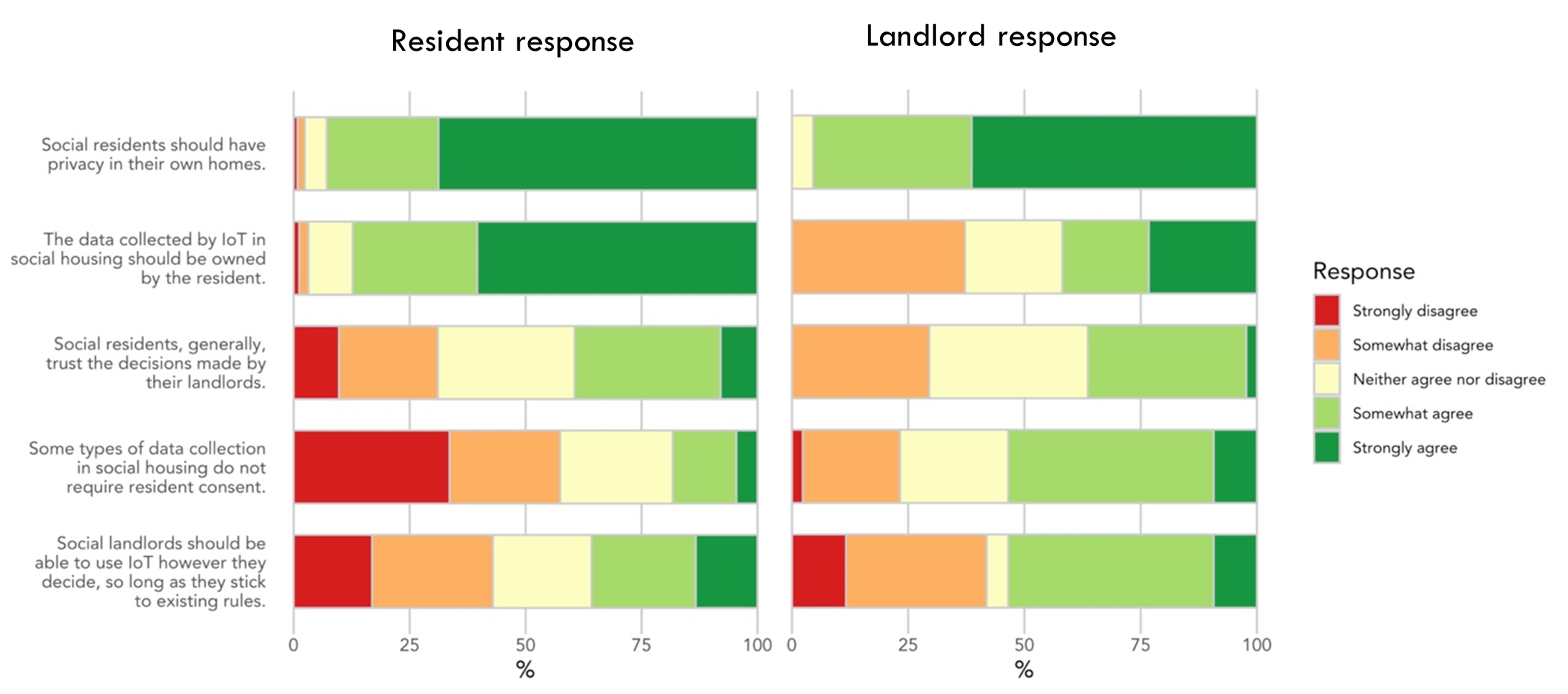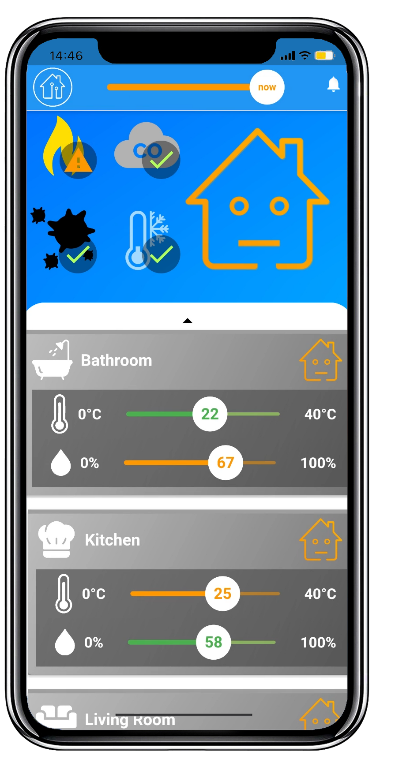Residents value benefits but landlords worry about perception
Social landlords are increasingly realising that the Internet of Things (IoT) can bring many benefits directly to their organisations through improved maintenance efficiencies, investment optimisation and compliance. It is also increasingly clear that there are many benefits to residents including improving health, safety and wellbeing while also providing opportunities to help them save money. This isn’t just anecdotal evidence, but is clearly backed up by recent research HomeLINK carried out with over 50 landlords. Figure 1 indicates that the resident related benefits such as tackling fuel poverty and improving living conditions and energy efficiency are among those most associated with IoT adoption in social housing.

Figure 1: Benefits most associated with IoT amongst social housing organisations
Despite this, landlords often worry about resident perception if IoT were adopted. For example, they often worry that residents might reject the technology for privacy reasons or that they could be perceived as some sort of ‘big brother’ organisation. The results of interviews and surveys with dozens of landlords and hundreds of residents showed that concerns exist on both sides; particularly when it comes to privacy, data ownership and consent as shown in figure 2.

Figure 2: Resident and landlord perceptions
When delving into the details, however, there are two key influences that alleviate these concerns: experience of the technology and trust. Through engagement with residents on numerous projects, it is clear that residents are glad to have adopted this technology for all the benefits previously outlined, after they have lived with it for only a short period of time. Our research also indicates that those who have greater trust in their landlords are more accepting of IoT. Trust also extends to social circles. Evidence of this is always apparent when scaling up IoT projects; each resident on the initial pilot always puts forward dozens of neighbours and friends for subsequent ones.
 Optimising the product for both landlords and residents
Optimising the product for both landlords and residents
Understanding of the potential transformative impact this technology could have on the landlord-customer relationships first arose during a GovTech project between HomeLINK and Leeds and York Councils, where in depth interviews were carried out with approximately 100 residents to understand the acceptability and likely engagement they would have with IoT data.
This project led to two significant outcomes for HomeLINK; 1. the development of the resident app product and; 2. the beginning of an ongoing IoT ethics research programme. It was clear during this project that IoT product development in social housing needs to consider the resident as much as it does the landlord. By taking this approach HomeLINK are ensuring that IoT adoption will not only be welcome by residents but that the potentially huge win-win scenario is realised. On the contrary, if these products are not developed through both a landlord and resident lens, the landlord’s fears of a big brother perception could be realised.
The HomeLINK resident app, pictured in figure 3, has been co-designed with residents in accordance to the UK Government’s Digital Service Standard and Technology Code of Practice. This product provides residents with free access to their homes data, providing transparency on what data is collected and giving them important knowledge and insight to improve their health, safety, wellbeing and energy expenditure. There is also a powerful win-win at play: as residents engage with the app to improve their health and save money, they are also improving the health of their home and ultimately saving the landlord money through preventative maintenance. This is not only theoretical; on a project with Wolverhampton Homes it was demonstrated that empowering residents with actionable insights led to significant improvements in mould risk, ventilation, fire safety and more.
Ensuring products are ethical and acceptable to residents is extremely important and HomeLINK are passionate about solving difficult and important challenges for landlords, not about enabling a police state. This approach and mindset is not only right ethically, but HomeLINK believe it is also the best strategic approach for landlords to take. For this reason, HomeLINK has a dedicated ethics researcher and also works closely with universities and social landlords. This research enables an understanding of what is truly acceptable to residents with regards to types of technologies, uses of data, data security and many other important areas of consideration when deploying IoT and developing associated software products
Happier residents, smoother engagement
There are many ways in which IoT can transform customer relationships and these broadly fit into two categories:
1. Happier residents
• Improved living conditions: healthier & safer.
• Monetary savings from targeted energy efficiency measures.
• Empowered with data and insights.
2. Less relationship friction
• Preventative maintenance = fewer reasons to visit and call.
• Fault transparency (e.g. likely cause of mould, structural or lifestyle, is clear).
• Resident app engagement (e.g. appointment scheduling and repairs feedback).
Visit the Homelink website
Visit the Aico website

- Log in to post comments















